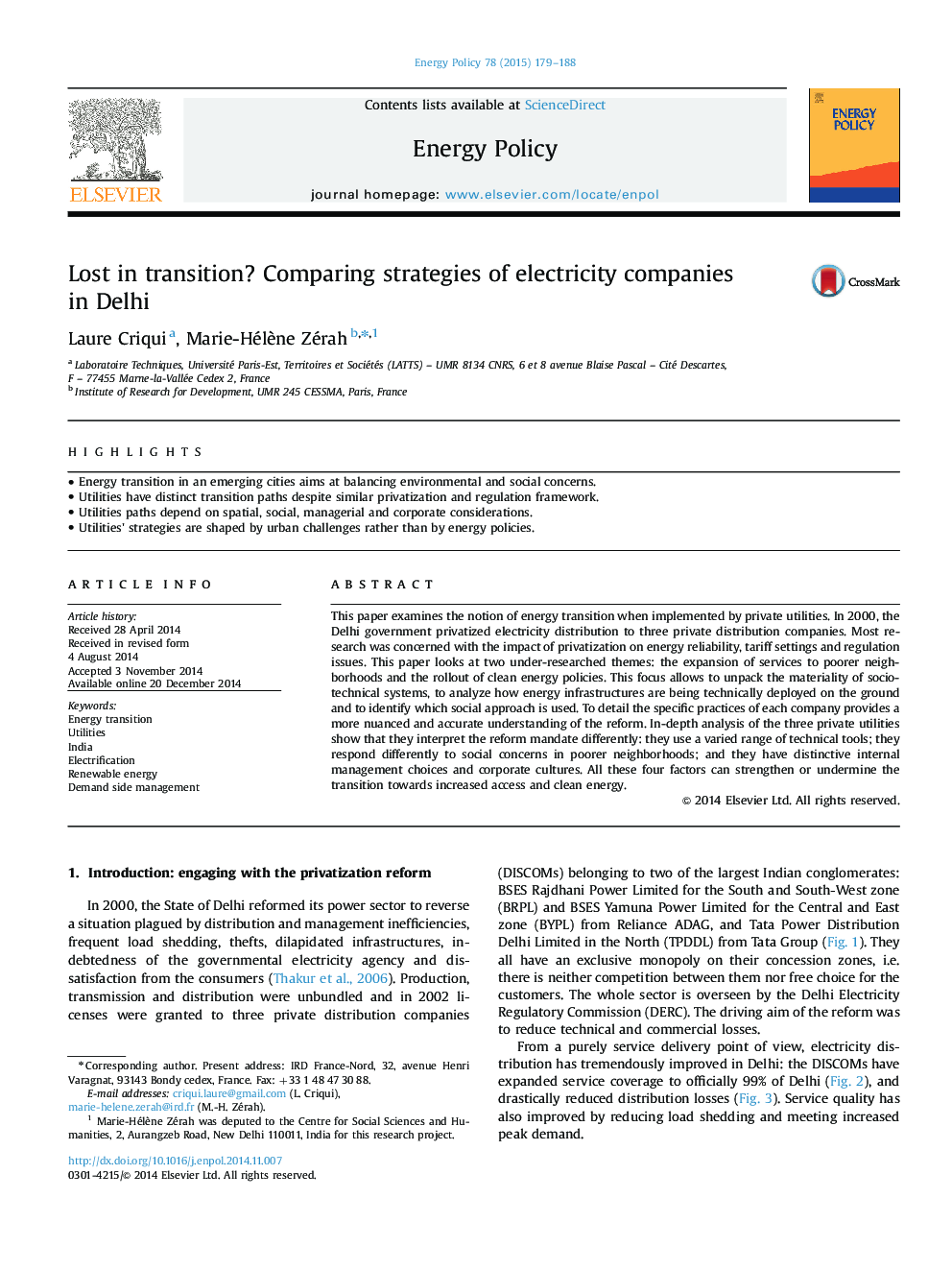| Article ID | Journal | Published Year | Pages | File Type |
|---|---|---|---|---|
| 995441 | Energy Policy | 2015 | 10 Pages |
•Energy transition in an emerging cities aims at balancing environmental and social concerns.•Utilities have distinct transition paths despite similar privatization and regulation framework.•Utilities paths depend on spatial, social, managerial and corporate considerations.•Utilities' strategies are shaped by urban challenges rather than by energy policies.
This paper examines the notion of energy transition when implemented by private utilities. In 2000, the Delhi government privatized electricity distribution to three private distribution companies. Most research was concerned with the impact of privatization on energy reliability, tariff settings and regulation issues. This paper looks at two under-researched themes: the expansion of services to poorer neighborhoods and the rollout of clean energy policies. This focus allows to unpack the materiality of socio-technical systems, to analyze how energy infrastructures are being technically deployed on the ground and to identify which social approach is used. To detail the specific practices of each company provides a more nuanced and accurate understanding of the reform. In-depth analysis of the three private utilities show that they interpret the reform mandate differently: they use a varied range of technical tools; they respond differently to social concerns in poorer neighborhoods; and they have distinctive internal management choices and corporate cultures. All these four factors can strengthen or undermine the transition towards increased access and clean energy.
